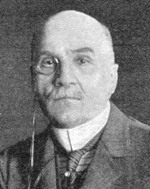July 5th and 6th in 1914 were two very momentous days that led down the path to war. There obviously are a series of “Oh no, that’s a disaster” sort of decisions that led to this. We get our first biggie since the Assassination, happening just a week afterwards.
Austria’s two boneheaded men in charge of the response–Berchtold and Conrad–as described upthread were really interested in starting some sort of war to reassert Austria-Hungary’s dominance in the region and her standing among super powers.
There was one problem with that: Russia. Russia had let it be known to all of Europe that they considered themselves the protectors of all peoples of Slavic heritage, and that certainly included Serbia. Berchtold knew that if he overplayed his diplomatic hand the way he was planning to grossly overplay it, he’d better make like that little dude in “My Bodyguard” and make sure he had someone bigger and stronger to hide behind. If you’re Austrian and looking for that kind of protection…well, you’re looking to Germany.
And so on July 5th and 6th, Austrian foreign emissaries met with the Kaiser and his own foreign minister. The Germans were well aware that both Russia and her ally, France, were up to no good in Serbia. They saw through–rightly, mostly–the “protector of the slavs” nonsense. Russia and France were enjoying the opportunity to drag Austria and Germany into a diplomatic mire that would help cement British feeling against the Kaiser.
Germany was sick of such meddling. And so, the Kaiser–always an excitable chap–told Austria not that they should act against Serbia, but that they must. In fact, the Kaiser told Austria that Vienna would have German support for anything they chose to do regarding the Serbian question.
For the Germans, this seemed at the time like a no-brainer. If the Tsar could issue blanket support of the Serbs–and he had, many times, although prior to the assassination–then Germany could do the same for Germanic peoples of central Europe (which meant Austria-Hungary). They also had no illusions about what sort of morons they were dealing with in Conrad and Berchtold. They fully expected Austria to blunder in their response and overreach like crazy. The Germans clearly felt that when this happened, the world would surely understand why. You get your heir to the throne assassinated, you get to lash out a little. The Germans would be able to come in, soothe the Austrians, get a compromise that worked for Britain and gave black eyes to the French and Russians for supporting such nonsense, and things would go on with the status quo.
For the Austrians, it was an authorization to do whatever they liked. The excited ambassador and his staff wired back to Vienna that they could count on full German backing on whatever their next move might be.
History has recorded this as a tremendous blunder by the Kaiser. History notes this as a “blank check” given to the Austrians, essentially authorizing them to do whatever they wanted regarding Serbia secure in the knowledge that the Germans would back them.
Here’s the scope of the blunder of this blank check: the Austrians hadn’t yet quite decided exactly what they’d do. There was going to be an official response from them for Serbia to act on, sure. Would it be an ultimatum?
Well…now it sure as hell would be.
Would the ultimatum be in any way agreeable to the Serbs?
Well…not anymore. Berchtold and Conrad had already discussed the insertion of poison pill items in the ultimatum–requests that they knew Serbia wouldn’t go along with. When Serbia refused those poison pills, it would give these two chowderheads who wanted a limited Balkan conflict to prop up their careers a reason to declare war on the Serbs.
When word reached Vienna of their blank check, both Berchtold and Conrad must have been gleeful. It helped them make their decision: they would indeed deliver an ultimatum to Serbia, with many requests, and would make sure that the Serbs would have to refuse to honor it.
There’s no doubt about the fact that Germany screwed up here by offering such unconditional support to Austria. However, it is important to realize that Germany sure as hell didn’t want a war, and didn’t see this support as leading to one. They knew that Bechtold and Conrad were incompetent. They knew also that everyone in Europe knew this. They fully expected that within a day or two, those fellows would issue Austria’s response. That response would be way out of proportion to the actual event, the assassination. Germany fully expected that Europe would clearly understand how such an inept, blunderous, and disproportional response had been made, and then they’d negotiate the Austrians back in off the ledge.
There was one problem the Germans were seemingly unaware of, however. People who issue blank checks–foolish as it may be–usually expect them to be either refused or cashed pretty quickly.
In this case, Austria planned to cash the check…but in their own slow time. The ultimatum they planned to send, they drafted a final version of within a day or two of getting their authorization. There was a complication, they saw, however, in delivering it.
That complication–and the time it took–made all the difference in the world.



